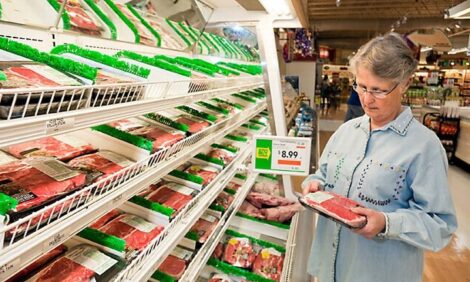Infertility will cause even greater pig shortage this summer
UK - Fertility problems in the national breeding herd started in October when scanning results were "all over the place", reports Paul Ibbotson, of Flawborough Pigs, Nottinghamshire.
|
Need a Product or service?
|
|
National
Pig
Association
THE VOICE OF THE UK PIG INDUSTRY
NPA is active on members' behalf in Brussels & White-hall, and with pro-cessors, supermarkets & caterers – fighting for the growth and pros-perity of the UK pig industry. |
"Some units experiencing 90% failure rate and the other 10% that did farrow were having only very small litters."
And in November/December boars were showing higher than normal morphology rates showing they also affected by the problem (whatever it was/is).
"Scanning really came into its own at this time as I was able to detect sows reabsorbing litters at an early stage. Instead of the normal nice round shaped black sacks I was picking up grey walnut shapes which were the developing foetuses being reabsorbed.
"At six weeks 95% of these proved negative but I was able to say that they had been in pig, which is a small consolation for the service man or women who may be questioning their ability."
Paul Ibbotson notes that AI has been put under the spotlight recently as a potential cause of the problem. "Some samples tested did show stress and poor motility in the very cold weather, especially semen travelling long distance by post," he says. "This is something that the major breeding companies have realised could be a problem area and most are now offering a temperature controlled delivery service."
In general, he says, well run outdoor units seemed to have fared best.
"With the number of units that have ceased production in the last 12 months it is not surprising that there is a shortage of pigs coming forward but wait unit July and August and I think that we will be extremely short of finished pigs after last autumn's blip," he warns.
Source: National Pig Association - April 2003

















